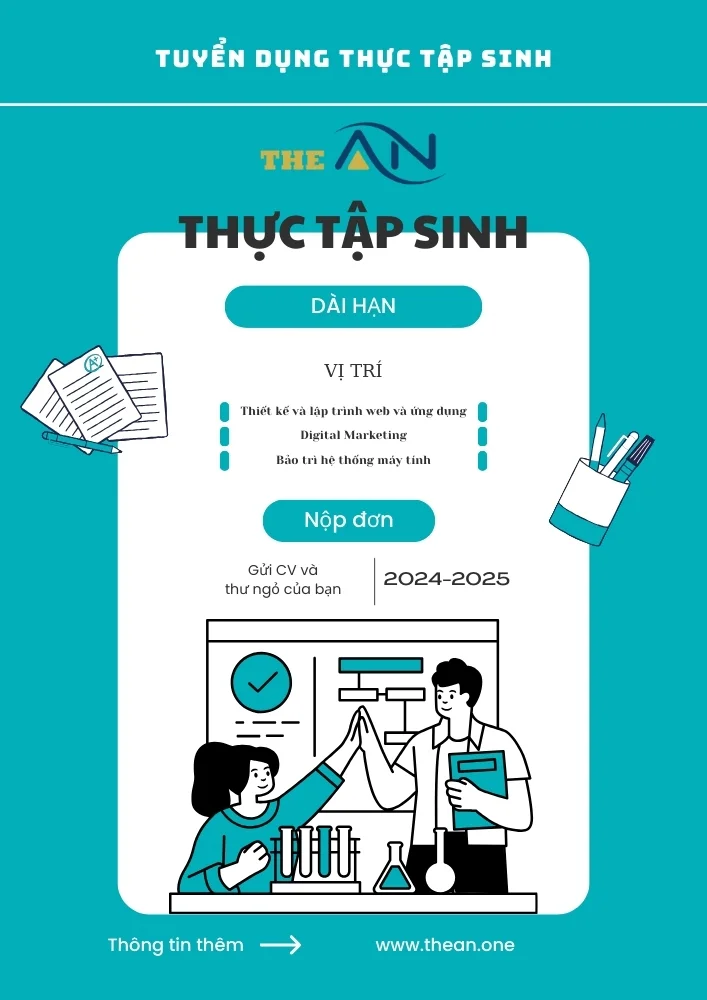Rags to Riches: The Online Rise of Secondhand Clothing

The resale market—a more modern term for secondhand fashion or consignment—has exploded in the last few years. Reports suggest it’s growing around 21 times faster than the general retail sector.
While the concept of peer-to-peer selling isn’t exactly new—we’ve all been familiar with the likes of EBay for some time—the influence of the pandemic and a sweeping shift towards sustainability (and clearing of clutter) has catapulted the success of platforms like thredUp and Depop.
But, what exactly is the driving force behind the sharp rise of resale—and what is its impact on digital marketing?
Let’s take a look.
The resale market and the influence of COVID-19
In 2018 alone, studies discovered that around £30 billion worth of clothing hung dormant in wardrobes across the UK alone. Even more shockingly, during the same year, Burberry burned more than £30 million of unsold garments.
From these jarring discoveries, consumers have slowly started looking to resale platforms like Depop, thredUP, Vinted, and the RealReal for a cheaper and greener way to buy clothing and accessories. At the end of 2018, the resale market was valued at around the $24 million mark—in 2021 its value is expected to reach $54 billion. Wow.
Sustainability & shopping habits
Since COVID-19 knocked the world off its axis, consumers across the globe have started to become more conscious and sustainable with their shopping choices.
Being forced into a state of isolation has given people time to stop and think about the world around them for a beat. In doing so, 71% consumers from 14 countries have concluded that climate change is as pressing as the virus.
The same international survey also confirms that 52% of consumers are more willing to fix their existing items, buy items with less packaging or buy used clothing and goods to help the environment—with 57% stating they’re going to change their behaviors in the next year.
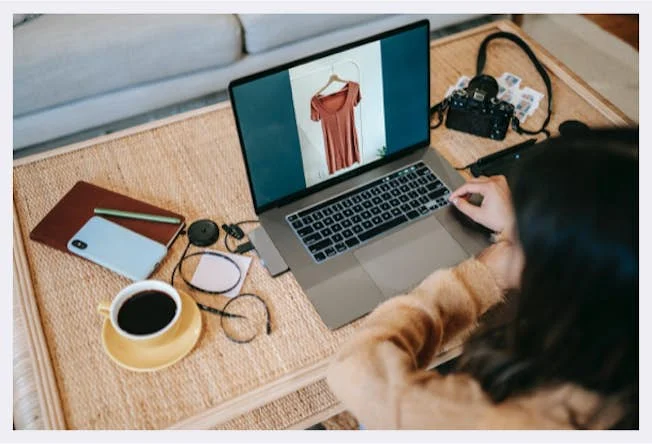
Enter the new breed of resale players
Placing the world into a state of isolation, the virus has also prompted a rise in social media usage and video calling.
To capitalize on the rise of the sustainable shopping mindset and create a social media-style community hub, a new breed of resale players has risen to the top of the market, the two most notable being thredUP and Depop.
1. thredUP
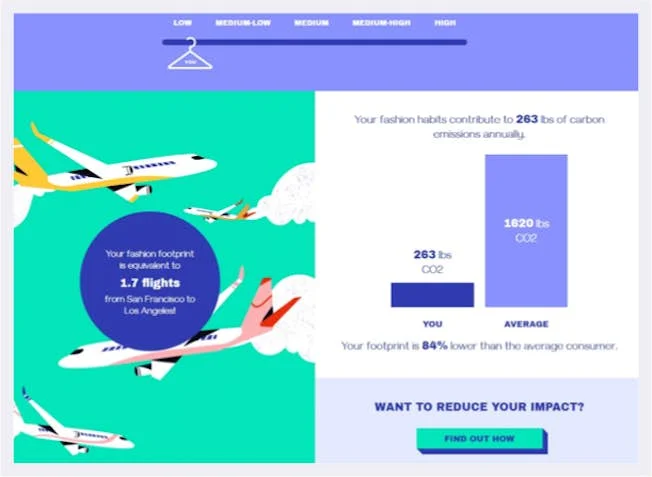
thredUP, one of the leading resale industry market leaders in North America which has recently been dubbed “the Amazon of resale”, has reaped the rewards of the COVID storm. Founded in Cambridge, MA in 2009, thredUp is committed to modernizing the second hand market.
Over the past decade, thredUp has seen steady growth with innovations such as its closet Clean Out Kit, inviting popup stores, and its recent Fashion Footprint Calculator.
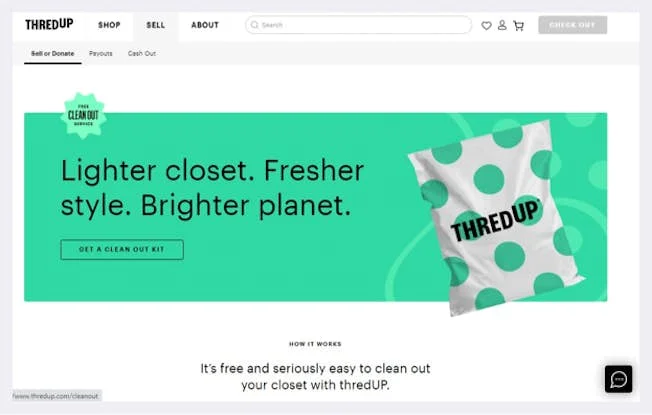
The brand is now an extensive peer-to-peer retail site that facilitates seamless selling and shopping, with a dedicated Newsroom packed with insightful content aimed at sustainable shoppers. ThredUP’s extensive 2020 industry report also showcases its value as an industry thought-leader.
The brand's consistency, persistence, and commitment to innovation has seen it process 100 million items and displaced a total of one billion pounds (lbs) of CO2e to date. Looks from thethredUp wardrobe even featured on the runway at 2021 New York Fashion Week—a prolific milestone in the brand's history and a testament to the growing power of the resale market.
2. Depop
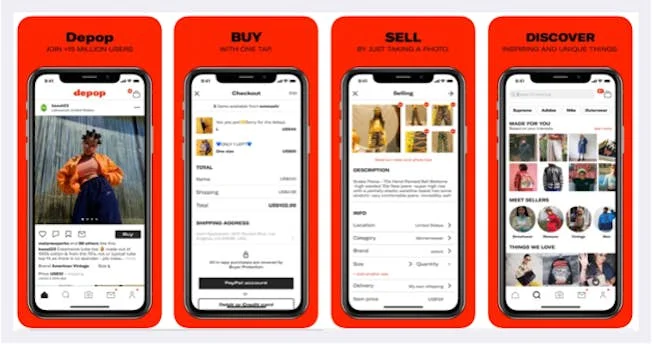
Depop, a slick online resale platform and app headquartered in the UK, started its journey in 2011 for equally ethical reasons as thredUP. Fast forward 10 years, and by 2021 it has become a resale market leader, boasting over 29 million registered users from 127 countries.
As well as appealing to eco-conscious digital natives (90% of its users are millennials and gen Zers under the 26 years old) it lives through its ideals, which are stated on its website as:
"[It's a place] where the next generation comes together to discover new items…transforming what fashion looks like."
Depop's functionality is also a big plus-point for its users—you can sell and showcase a few items here or there, or set up a fully-fledged storefront to create a brand and enjoy a sustainable source of income.
The platform's ongoing growth lies in its community-driven nature: it's not just a place for buying and selling, it's an interactive hub that empowers its consumers to celebrate modern fashion, culture, and sustainable attitudes towards shopping.
It’s this perfect storm of green brand values, community feel, and top-flight user experience (UX) that has catalyzed Depop’s growth during COVID-19. Heighted demand means that Depop has expanded its empire, with new international offices as well as at least 60 employees since the end of 2020.
An increasing number of consumers were looking for a resale outlet to meet their sustainable shopping needs, and Depop was there to deliver, head on.
Thrifty feats of resale marketing in action
The rising consumer clout of the resale market is undeniable. To demonstrate the industry’s power and relevance, let’s look at two thrifty marketing campaigns—starting with this tasty slice of promotion.
1. thredUP’s Fashion Mindfulness Challenge
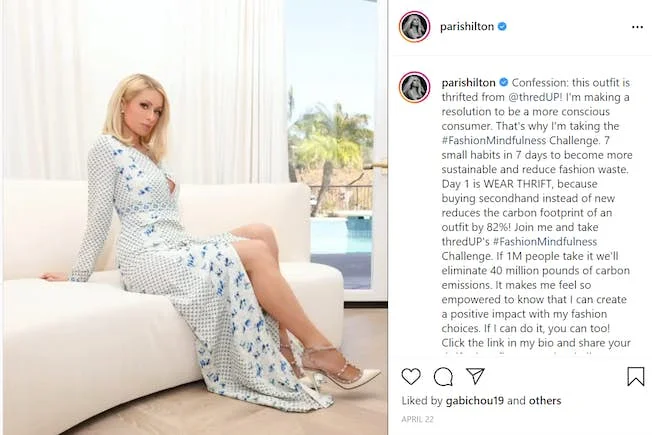
With a thrifty influencer-driven marketing campaign launched on Earth Day, thredUp rode the crest of the resale wave it help to create with its seven-day #FashionMindfulness challenge.
Working in collaboration with the likes of Paris Hilton, Aimee Song, and Hannah Bronfman, thredUp asked consumers to carry out a different sustainability activity for seven days and share their efforts using the campaign hashtag.
By sharing vital sustainability insights and working with a mix of fashion-centric influencers, the campaign earned droves of social engagement while spreading vital awareness about the importance of shopping sustainably.
It’s marketing initiatives like this that have earned the brand record breaking sales figures in Q1 of 2021, with further growth projected.
2. Papa John’s x Cheddar
To promote its brand new cheddar pizza range to young, trendy digital natives, global pizza chain Papa John’s created a video-based campaign that is essentially a spoof fashion drop.
On discovering what makes gen Zers tick and where they engage online, Papa John’s developed assets with a modern appeal, boosting its promotional reach with a range of sustainable branded street wear that it’s selling through—you’ve guessed it—Depop!
Speaking on the savvy slice of marketing, Jo Blundell, vice-president, international marketing at Papa John’s, explained:
“Whenever we launch a fresh range of pizzas internationally we look for interesting cultural cues that can resonate with consumers across a wide range of markets.
Insight told us that streetwear, fashion and music have strong universal appeal to our core gen Z audience."
While we’re yet to see the full impact of Papa John’s Depop collaboration, we do know that it has earned plenty of media attention—with messaging, visuals, and a strategy designed for digitally native engagement.
As we become more ethical as consumers, the resale marketing can only go one way: up. As more retail executives make moves towards the resale space, an increasing number of brands are looking to follow the Papa John’s route, partnering up with the likes of thredUp and Depop to reach a wider audience of community-driven, eco-conscious digital natives.
As retail marketers, using emerging as well as established resale platforms to promote your brand and sell sustainable items of inventory to engaged users is not only an effective way of earning more revenue, but also cementing your reputation as a brand that’s committed to a greener, more sustainable future. And, if you’re not actively seen as green, you will get left in the commercial dust.
Now is the time to embrace the power of resale, one campaign at a time. To learn more about online retail, check out our eCommerce course.
“Fashion can be a universal player in protecting the planet” - Pharrell Williams
Source: DMI
Looking for a custom web design? Then Contact the website designers at The ÂN in Vietnam via (+84).326.418.478 (phone, zalo, viber) or schedule a consultation.
Other useful information:
Others article

17 Sustainable Development Goals of United Nations
The SDGs build on decades of work by countries and the UN, including the UN Department of Economic and Social Affairs ...

A Technology Partner Can Help Midsize Businesses Accelerate Digital Transformation
Never let a crisis go to waste. Many organizations see the pandemic not as a global catastrophe but as a rare opportunity to ...







